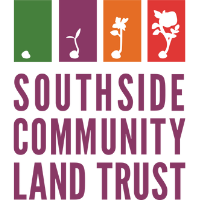Southside Community Land Trust’s newly released 2024-2025 Impact Report tells a story of adaptation and community solidarity during a year of unprecedented financial challenge. As federal support – which comprised approximately 40% of SCLT’s budget – began eroding, the organization faced a critical question: Could it maintain its mission of providing equitable access to healthy food and economic opportunities while navigating such significant funding losses?
The answer, as detailed in the report, has been a resounding yes, though not without significant effort and strategic pivoting. Despite the funding uncertainty, SCLT’s core programs not only survived but continued to expand their reach, serving 26,000 people annually across Rhode Island through community gardens, farmer support services, workforce development programs, and healthy food access initiatives. The organization’s 25 community gardens, spanning 6.42 urban acres, continue to provide 325 gardeners speaking 34 languages with space to grow culturally familiar foods, a testament to SCLT’s deep roots in Rhode Island’s diverse communities.
Perhaps most impressively, SCLT’s food distribution efforts scaled dramatically even amid financial constraints. Through its Healthy Food Access Program, the organization collected and distributed 60,000 pounds of produce in 2025, generating $350,000 in revenue for local farmers. The program’s success reflects years of relationship-building with 45 farmers managing operations across 74.75 acres. Meanwhile, programs like Veggie Rx, which provides weekly bags of seasonal, culturally familiar produce valued at $30-$35, and free farm stand giveaways at 13 community events reached 1,200 people who might otherwise lack access to fresh, affordable food.
The report reveals that local support grew substantially in 2025, though it hasn’t yet fully replaced the 40% federal funding loss. Executive Director Margaret DeVos and Board President Rochelle Lee acknowledge that the organization continues to anticipate decreases in USDA support as multi-year contracts expire without renewal. However, they emphasize that vital programs, including the 404 Broad Healthy Food Hub, aggregation partnerships, Veggie Rx, and Free Farm Stand initiatives, remain strong because “our local funding community has stepped up to support them.”
SCLT’s Workforce Development program, which serves 30 youth annually aged 14-24, exemplifies the organization’s commitment to long-term community transformation despite funding uncertainty. With 93% of participants going on to college or the workforce, 60% returning for multiple seasons, and 90% considering careers in agriculture, environmental science, or food policy, the program represents an investment in the next generation of food system leaders that SCLT refuses to abandon even in challenging times.
However, the situation has grown more urgent since the impact report was compiled. The federal government shutdown on October 1st has thrown SCLT’s carefully managed budget into crisis mode. The anticipated erosion of federal funding that the organization had been strategically preparing for throughout 2025 has suddenly accelerated into an immediate emergency, forcing cuts to the very programs highlighted in this impact report as success stories.
The timing is particularly cruel: just as local support was growing to help bridge the federal funding gap, the shutdown has created an immediate cash flow crisis that threatens to undermine years of careful community building. The Aggregation Program that generated $350,000 for farmers, the Veggie Rx initiative serving vulnerable families, and the Workforce Development program investing in young people’s futures are all now facing reductions. For an organization that has spent decades demonstrating resilience and adaptation, this moment represents perhaps its most significant test, not of its mission or its impact, but of whether the community it has served so faithfully will be able to sustain it through a crisis not of its making.
For Rhode Islanders who have witnessed SCLT’s evolution over nearly four decades, the 2024-2025 Impact Report demonstrates both what’s been accomplished through community partnership and what’s now at stake. The numbers tell a story of growth and impact; the current moment asks whether that story can continue.

